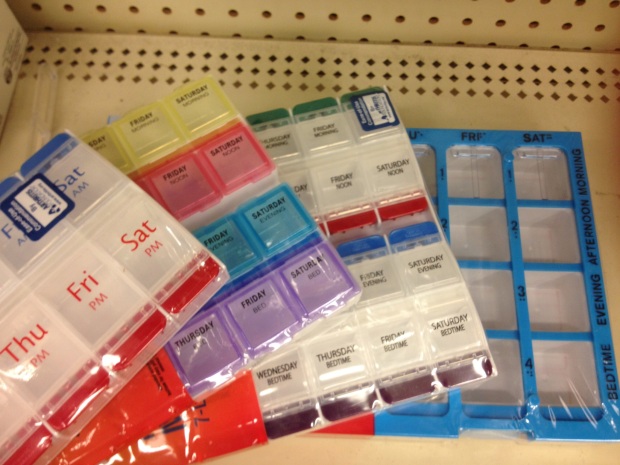
“If you don’t come back next year with a port, I will refuse to see you.” The admonition came in a harsh whisper, barely audible through her mask and face shield. Finally done removing the PICC line that until moments ago had been stitched into the skin of my upper arm, my exasperated pulmonologist left the room. I sat, stunned. Can she do that . . . ?
The summer of my freshman year of undergrad, I was forced to make a decision. Was I going to allow my qualms about what my body would look like with an implanted medical device stop me from doing what was best for my health? Ultimately, I chose to go ahead with the procedure. However, that didn’t stop me from agonizing about it for weeks. See, this was not the first time one of my docs had brought up the idea of getting a port-a-cath. A port is an implanted venous access device for patients who need frequent or continuous administration of IV medications (such as chemotherapy). It is accessed underneath the skin of the chest via a needle. The idea had been floated to me for years, starting when I was in middle school, but the rail thin, flat-chested youngster that was 13 year old Rachel balked at having a huge bump in the middle of her chest. So, instead I chose to get PICCs twice a year. I suffered through pierced skin and bruised arms and uncooperative veins, just so I’d look normal. PICCs were temporary. A port was permanent. Each PICC did a little more damage to the circulatory system in my arms and every six months I ended up with another hole to add to the collection of scars on my underarm. Well, now my arms were shot. I had no choice. I had to get a port, but I didn’t have to be happy about it.
What would people think? Cliché, I know.
I’m a fairly confident individual. I am not plagued with daily insecurities about my body—if I’m tall enough, or skinny enough, or what have you. Even if my mature body hasn’t progressed that far from my middle school self, I am okay with it. But, dating is hard enough without having to worry about some guy freaking out at the thing underneath my skin once he’s gotten my shirt off. I had a choice. I could let my concerns over body image stop me from taking control over my health. Or I could not. What I’ve come to understand about these types of decisions is this. When trying to reconcile fear and (admittedly) shame with medical necessity, remember that it is NECESSARY. You can be mad about it. You can hate that you have to do it. But, at the end of the day, you’ll feel better knowing you made the right choice for your physical wellbeing.
In my case, sometimes making the hard choice turns out way better than you thought. I got the port put in that summer. I did it when it wasn’t urgent that the placement happen as soon as possible—unlike if they were forced to do a placement after a failed PICC line, for example. So, I got to really consult with my interventional radiologist about where I wanted it placed. Instead of putting it in the center of my chest, with a large catheter visibly going up the vein in my neck, I got mine placed on the side of my chest. He even took the time to draw an outline of my favorite bra on my skin with a sharpie, so he knew exactly where I wanted it. Now, my port is practically invisible underneath my bra strap when I don’t have a needle sticking out of it. I found a way to combat my insecurities and still make the right choice for me medically.
Does this mean I’ve overcome all of my body image issues as it relates to medical stuff? Not even close. In fact, I’ve found myself facing the same choices over and over again. Last year, I had a g-tube placed in my stomach. The same story. I didn’t want ANOTHER machine sticking out of me. I already have my own aisle at the hardware store. And there would be no hiding this one, not really. So, I put it off. I tried to eat and eat and eat (which is not as fun as it sounds believe me). I even tried nightly NG feeds, because just like PICC lines they are temporary and removable. Let’s just say you can only throw up all over yourself—as a tube is shoved up your nose and down your throat—so many times. The CF Foundation guy in the NG video makes it look sooo easy, too. HA!
I found myself flashing back to the same fears. My shirt comes off, they see the tube . . . and commence freak out. Was this small worry really going to stop me from taking care of myself? It always comes back to what is MEDICALLY NECESSARY. By the time I got my tube placed, I was so sick I was down to 82 pounds. At that point, I felt so awful I didn’t give a damn about what I looked like, I just wanted to feel better. Just remember when you start to feel the whisper of insecurity that could hold you back from making the right choice for your health: your friends and family won’t care what you look like; you’ll be healthier and happier for having gotten the procedure (whatever it is) done; and any potential dates will either accept it, or they can keep on moving.
So, my advice is to confront your body image fears and concerns head on. And then, let it go. I was so afraid that it would be a massive turn off and deal breaker. Guess what? It was. Last year I started seeing a guy who knew up front all about my Cystic Fibrosis. He agreed to go on a date with me while I was in the hospital, in fact. Eventually my shirt came off, he saw the tube. All shenanigans came to an abrupt halt. He shortly thereafter left my place and I never heard from him ever again. Was it the end of the world? No! Do I regret it? No! I now have a foolproof asshole detector built into my stomach.
If you have to get an implanted medical device—whether it’s a port, a g-tube, an insulin pump, a pain pump, or a colostomy—maybe think about it this way: everyone else only wishes they could be a badass human machine. Cyborgs are awesome.
So, plug in your battery pack and take it one breath at a time.







